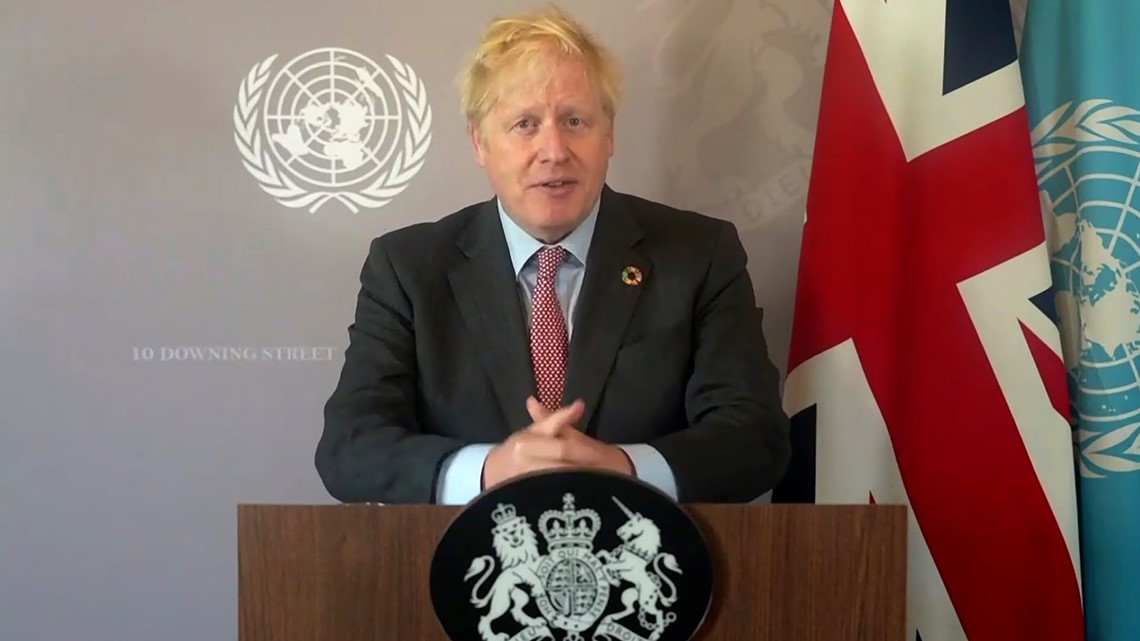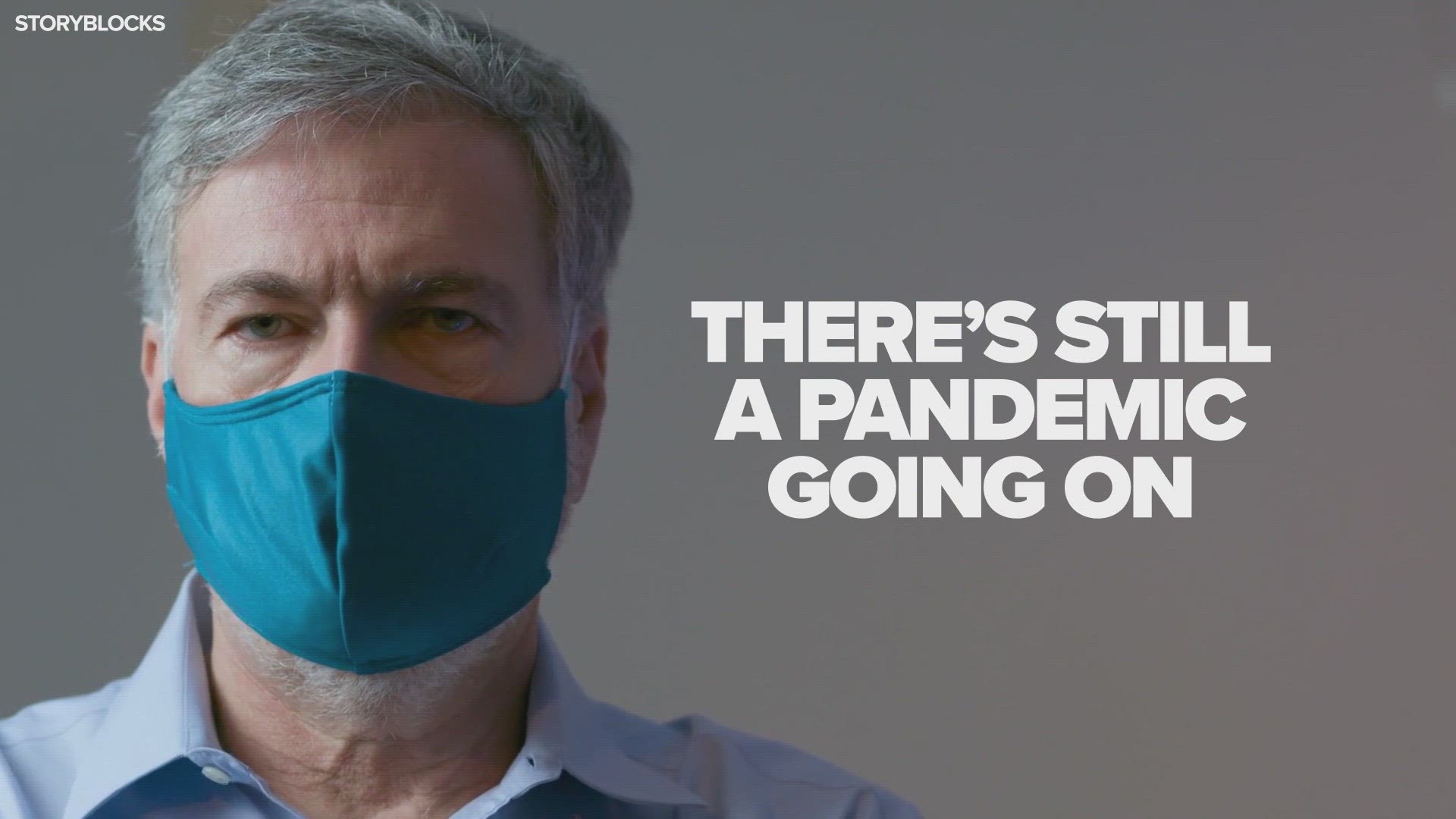LONDON, UK — British Prime Minister Boris Johnson said Saturday that the coronavirus pandemic has frayed the bonds between nations, and urged world leaders to unite against the “common foe” of COVID-19.
Johnson, who made the remarks in a prerecorded speech to the United Nations General Assembly, said that, nine months into the pandemic, “the very notion of the international community looks tattered.”
“Never again must we wage 193 separate campaigns against the same enemy," he said.
Johnson set out a plan for preventing another global pandemic, including a network of zoonotic research labs around the world to identify dangerous pathogens before they leap from animals to humans.
Johnson — who contracted COVID-19 in the spring and spent three nights in intensive care — also called for countries to share data to create a global early-warning system for disease outbreaks, and urged countries to stop slapping export controls on essential goods, as many have done during the pandemic.
Johnson also committed 500 million pounds ($636 million) through the global COVAX vaccine-procurement pool to help 92 of the world’s poorest countries obtain a coronavirus vaccine, should one become available.
He announced that the U.K. is boosting its funding for the World Health Organization by 30%, to 340 million pounds ($432 million) over the next four years, and urged world leaders to acknowledge “that alarm bells were ringing before this calamity struck' and to learn from the experience.
“With nearly a million people dead, with colossal economic suffering already inflicted and more to come, there is a moral imperative for humanity to be honest and to reach a joint understanding of how the pandemic began, and how it was able to spread — not because I want to blame any country or government, or to score points,″ Johnson said. “I simply believe – as a former COVID patient – that we all have a right to know, so that we can collectively do our best to prevent a recurrence.″
Johnson is seeking to counter the impression that Britain is retreating from the world stage or becoming more protectionist in the wake of its departure from the European Union. The U.K. left the bloc’s political institutions in January and will make an economic break when a transition period ends on Dec. 31.
As an example of British leadership and generosity, he noted Oxford University researchers had immediately shared a discovery that a cheap medicine called dexamethasone reduces the risk of death by over a third for patients on ventilators. He also referred to efforts in Britain by Oxford and drugmaker AstraZeneca to develop and manufacture a vaccine.
“It would be futile to treat the quest for a vaccine as a contest for narrow national advantage and immoral to seek a head start through obtaining research by underhand means,'' he said. “The health of every country depends on the whole world having access to a safe and effective vaccine, wherever a breakthrough might occur; and, the UK, we will do everything in our power to bring this about.''
He has also struck a more measured tone than in last year’s speech to the U.N. gathering, a rambling address about the perils and promise of technology that mentioned “terrifying limbless chickens,” “pink-eyed Terminators from the future” and fridges that beep for more cheese.



